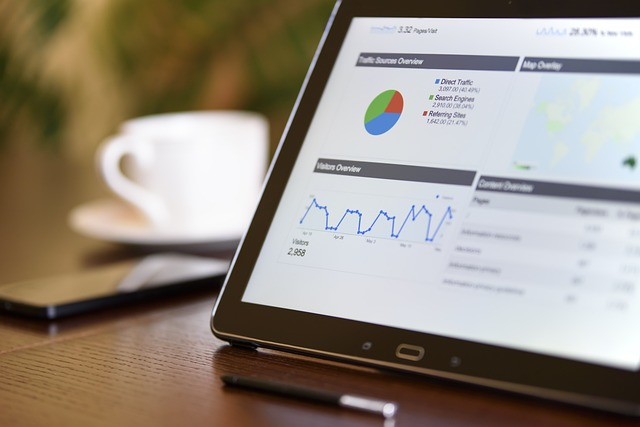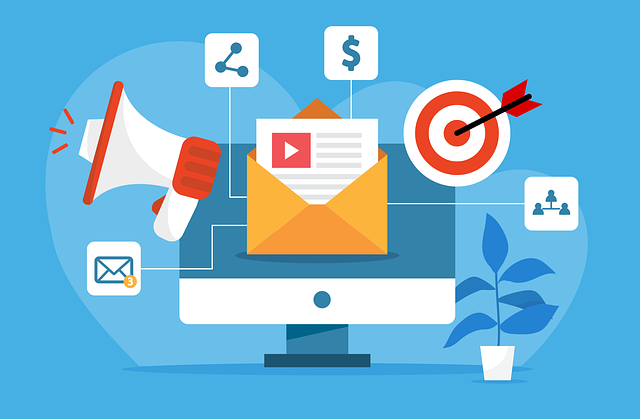In today’s world, small businesses face many challenges. Competing with larger companies is one of them. Fortunately, digital marketing offers a powerful solution. With the right digital marketing strategy, small businesses can thrive. So, how digital marketing helps small business? This article will explain exactly that.
Understanding Digital Marketing
Digital marketing is the use of digital channels to promote products and services. It includes social media marketing, email marketing, search engine optimization, and more. Traditional marketing methods like print ads and TV commercials are often expensive. Digital marketing, however, is cost-effective and reaches a wider audience.
Why Digital Marketing is Important
So, how digital marketing helps small business? Digital marketing is important for several reasons. First, it allows small businesses to reach their target audience more effectively.
With digital marketing strategies, businesses can create targeted campaigns. These campaigns are aimed at specific groups of potential customers. This increases the chances of converting them into paying customers.

Second, digital marketing helps small businesses build a strong online presence. A well-designed website and active social media accounts can attract more visitors. This leads to increased brand visibility and recognition.
Third, digital marketing offers valuable insights through analytics tools. These tools track marketing progress and measure engagement metrics. They help businesses understand what works and what doesn’t. This data is crucial for refining and improving marketing campaigns.
Digital Marketing Channels for SMB Digital Marketing Strategy
Social Media Marketing
Social media marketing is a key component of digital marketing. Platforms like Facebook, Instagram, and Twitter have billions of users. Small businesses can use these platforms to reach their target customers. By posting engaging content and interacting with followers, they can build brand loyalty.
Social media also allows businesses to create targeted advertising campaigns. For example, Facebook Ads lets businesses target users based on their interests and behaviors.
This ensures that the marketing budget is spent wisely. Creating social media posts is an another brilliant way to drive traffic to the business’s website, increasing the chances of conversions.
Search Engine Optimization (SEO)
Search engine optimization is another vital aspect of digital marketing. SEO involves optimizing a website to rank higher on search engine results pages (SERPs). This increases the website’s visibility and attracts more organic traffic.
A strong SEO strategy includes keyword research, content creation, and link building. Small businesses should focus on relevant keywords that their target audience is likely to search for.
High-quality content that provides value to the readers is essential. Backlinks from reputable websites also boost the website’s authority.
SEO is a long-term investment but offers significant benefits. Higher rankings on search engines lead to more website traffic. This can result in more leads and, ultimately, more customers.

Email Marketing
Email marketing remains one of the most effective digital marketing channels. It allows businesses to communicate directly with their customers. By sending regular newsletters and promotional emails, businesses can keep their audience informed and engaged.
Email marketing is also a great way to nurture leads and build relationships with existing customers. Personalized emails that address the recipient by name are more likely to be opened and read. Businesses can use email marketing to announce new products, share company news, or offer special promotions.
Content Marketing
Content marketing involves creating and sharing valuable content to attract and engage a target audience. This can include blog posts, videos, infographics, and more.
The goal is to provide useful information that helps potential customers solve a problem or learn something new.
Content marketing is an effective way to establish authority and trust. When businesses consistently publish high-quality content, they position themselves as experts in their industry. This can lead to increased credibility and customer loyalty.
Content marketing also plays a crucial role in SEO. Search engines favor websites that regularly update their content. Additionally, ensuring website content is original and free from plagiarism is essential. Utilizing an AI detector can be an effective tool in this context.
By creating fresh and relevant content, businesses can improve their search engine rankings and drive more traffic to their website.

Pay Per Click Advertising (PPC)
Pay per click advertising is a form of paid advertising where businesses pay a fee each time their ad is clicked. Google Ads is a popular PPC platform. It allows businesses to create ads that appear on search engine results pages. PPC is a great way to generate leads quickly.
PPC campaigns can be highly targeted. Businesses can choose keywords, demographics, and locations to ensure their ads reach the right audience.
This makes PPC a cost-effective way to drive traffic and increase conversions. That’s how digital marketing helps small business.
Customer Engagement and Retention
Digital marketing helps small businesses engage with their customers. Through social media, email, and other digital platforms, businesses can interact with their audience.
This fosters a sense of community and builds stronger relationships.
Customer engagement is crucial for customer retention. Satisfied customers are more likely to become repeat buyers. They are also more likely to recommend the business to others. Digital marketing allows businesses to stay connected with their customers and keep them coming back.
Benefits of Digital Marketing for Small Businesses
There are many benefits of digital marketing for small businesses. It levels the playing field, allowing them to compete with larger businesses.

It is cost-effective, making it accessible even for businesses with a limited marketing budget. It offers measurable results, allowing businesses to track their marketing efforts and adjust their strategies as needed.
Digital marketing also provides a global reach. Unlike traditional marketing methods, which are often limited to a specific geographic area, digital marketing can reach potential customers anywhere in the world. This opens up new markets and growth opportunities for small businesses.
Embracing Digital Marketing
Small businesses that embrace digital marketing are more likely to succeed.
By learning digital marketing skills and implementing effective strategies, they can increase their visibility, attract more customers, and grow their business.
Digital marketing is not a one-size-fits-all solution. Each business must develop a strong digital marketing strategy that aligns with its goals and target audience.
It is important to stay up-to-date with the latest trends and technologies in digital marketing. This ensures that the business remains competitive and continues to achieve positive results.
How Can Small Businesses Find Their Target Audience?

Leveraging a Digital Marketing Strategy to Identify Your Target Audience
Developing a strong digital marketing strategy is crucial for small businesses to find their target audiences. By analyzing market trends, customer behavior, and competitors, businesses can create personalized marketing campaigns. This targeted approach increases engagement and helps convert customers more effectively.
Utilizing Digital Marketing Channels for Audience Insights
Different digital marketing channels provide unique insights into audience behavior.
Social media platforms, email marketing, and content marketing offer data on customer preferences and interaction patterns. Leveraging these channels helps businesses understand their target audiences better and tailor their marketing efforts accordingly.
Understanding the Benefits of Digital Marketing for Audience Identification
One of the key benefits of digital marketing is the ability to gather detailed customer data. So, how digital marketing helps small business?
This data helps small businesses segment their target audiences based on demographics, interests, and behaviors. Accurate audience segmentation leads to more effective marketing campaigns and higher conversion rates. Is digital marketing important for SMB? Digital marketing works? Yes!
Comparing Digital Marketing with Traditional Marketing Methods
While traditional marketing methods like print advertising and direct mail can reach broad audiences, digital marketing allows for precise targeting.
Small businesses can compare the effectiveness of these methods by analyzing metrics such as engagement rates and customer acquisition costs, ultimately identifying the most suitable approach for their target audience or marketing for small business.
Crafting a Marketing Strategy That Appeals to Your Audience
An effective marketing strategy is essential for reaching the right audience. By conducting market research and analyzing customer data, small businesses can identify the needs and preferences of their target audiences. This information helps in crafting messages that resonate with potential customers when you market online.
Enhancing Digital Marketing Skills to Understand Your Audience
Learning digital marketing skills is vital for small business owners. These skills enable them to utilize tools and techniques that provide valuable insights into audience behavior.
By understanding analytics and customer data, businesses can refine their marketing strategies to better align with their target audiences.
Why Digital Marketing is Important for Target Audience Engagement
Digital marketing is important for engaging with target audiences in real time. Social media interactions, personalized email campaigns, and targeted ads allow businesses to connect with customers directly. This immediate engagement helps build relationships and trust, making it easier to convert customers and retain them.
Integrate Digital Marketing to Pinpoint Your Ideal Customers
Integrate digital marketing techniques with existing business processes to accurately identify and reach ideal customers. Using small business CRM systems and marketing automation tools, startups can track customer interactions across various touchpoints, ensuring that marketing messages are tailored to specific audience segments.
Myth Busting: Common Misconceptions about Digital Marketing for Small Businesses
While digital marketing is a powerful tool, several misconceptions can mislead small business owners. In this segment, we will debunk three common myths about digital marketing strategy and provide factual insights to enhance your understanding.
Myth 1: Digital Marketing is Too Expensive for Small Businesses
Many small business owners believe that digital marketing is beyond their financial reach. They think it’s a domain reserved for large companies with big budgets. This is not true.
Fact: Digital Marketing is Cost-Effective
Digital marketing offers a range of cost-effective options. Unlike traditional marketing strategies such as print advertising, digital marketing channels like social media platforms and email marketing are affordable. Small businesses can start with a small budget and scale their marketing efforts as they grow. Analytics tools help optimize spending by identifying the most effective strategies. Thus, digital marketing makes it possible for small businesses to reach their target audiences without breaking the bank.
Myth 2: Digital Marketing is Only About Social Media
Another common myth is that digital marketing is synonymous with social media marketing. While social media platforms are a significant part of digital marketing, they are not the whole picture.
Fact: Digital Marketing Encompasses Various Channels
An effective digital marketing strategy integrates multiple channels. Besides social media, digital marketing includes search engine marketing, email marketing, content marketing, and pay-per-click (PPC) advertising. Each channel plays a unique role in reaching and engaging targeted customers. For instance, search engine optimization (SEO) helps improve website visibility on search engines, while email marketing nurtures leads and retains existing customers. Embracing digital marketing means leveraging various channels to create a comprehensive and successful strategy.
Myth 3: Digital Marketing Requires Extensive Technical Skills
Some small business owners believe they need advanced technical skills to succeed in digital marketing. This misconception can discourage them from exploring online marketing opportunities.
Fact: Digital Marketing is Accessible to All
While learning digital marketing skills can enhance your marketing strategy, many digital marketing platforms are designed to be user-friendly. Tools for creating digital ads, managing social media posts, and tracking marketing campaign performance are intuitive and often come with tutorials. Small businesses can also hire digital marketing professionals or agencies to handle their marketing efforts. Moreover, there are many online resources and courses available to help small business owners learn the basics of digital marketing.
Future Implications
Looking ahead, digital marketing will become even more crucial for small businesses. As technology advances, integrating digital marketing into everyday operations will be essential. So, how digital marketing helps small business? Small business owners will need to continuously learn digital marketing skills to keep up with new tools and platforms. Other digital marketing channels will emerge, offering innovative ways to create advertising and reach potential customers.
With just a few clicks, businesses will be able to launch highly targeted digital marketing campaigns, efficiently converting new customers and maintaining a positive brand image. The competition for online visibility will increase, making it more important to allocate advertising money wisely. In this evolving landscape, the ability to adapt and leverage digital marketing will determine success. Marketing for small businesses will become more dynamic, requiring agility and a forward-thinking approach to stay ahead.
Conclusion
So, how digital marketing helps small business? In conclusion, digital marketing is a powerful tool for small businesses and each small business owner. It helps them reach their target audience, build a strong online presence, and achieve their marketing goals. By leveraging digital channels and implementing effective digital marketing strategies, small businesses can thrive in today’s competitive market.
Whether through social media marketing, SEO, email marketing, or content marketing, the benefits of digital marketing are clear. Small businesses that invest in digital marketing will see increased brand visibility, customer engagement, and growth. Embracing digital marketing is not just an option; it is a necessity for small businesses looking to succeed in the digital age.



